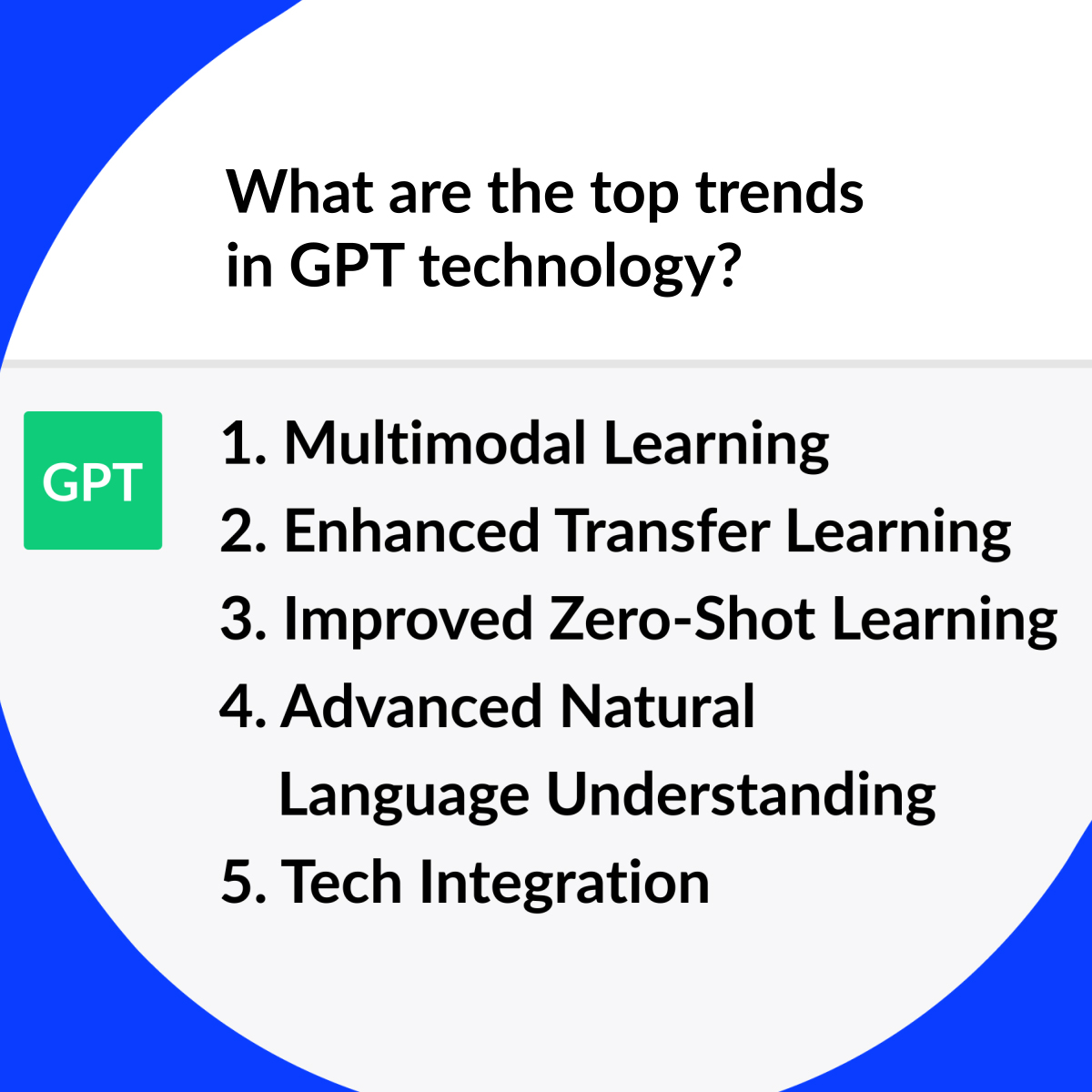 GPT (Generative Pre-trained Transformer) technology has become increasingly popular in recent years due to its ability to generate human-like text. This article discusses 5 trends in GPT technology, including multilingual capabilities, ethical concerns, and domain-specific training. Additionally, the article highlights the importance of continued research and development in the field to ensure the responsible use of GPT technology.
GPT (Generative Pre-trained Transformer) technology has become increasingly popular in recent years due to its ability to generate human-like text. This article discusses 5 trends in GPT technology, including multilingual capabilities, ethical concerns, and domain-specific training. Additionally, the article highlights the importance of continued research and development in the field to ensure the responsible use of GPT technology.
GPT-3 is an AI language model developed by OpenAI, known for its impressive ability to generate human-like text. This model has been used in various applications such as chatbots, content creation, and even programming. In this article, we will discuss the top five trends in GPT technology that you need to know about.
Multilingual models - GPT models are now being trained to work with multiple languages, making them more versatile and globally accessible.
Fine-tuning for specific tasks - GPT models are being fine-tuned for specific tasks such as language translation, summarization, and question-answering.
Increased accuracy - GPT models are being fine-tuned and trained on more data, which is increasing their accuracy and making them even more useful.
Customized models - Companies are now developing customized GPT models to meet their specific business needs and industry requirements.
Ethical concerns - As GPT models become more advanced and capable, there are growing concerns about their ethical implications, such as potential biases and misuse.
Overall, the future of GPT technology is bright, with new developments and applications emerging every day. As more industries and businesses adopt this technology, it is important to consider its potential impact and use it responsibly.
In this article, we’ll explore five trends in GPT tech that you need to know about.
GPT Technology Trend #1: Multimodal Learning
GPT-4’s ability to accept both image and text inputs has opened up new possibilities for multimodal learning. This trend involves training models on multiple types of data, such as text, audio, and visual inputs. With GPT-4, multimodal learning is becoming more accessible and can help to improve performance in a wide range of applications.
GPT Technology Trend #2: Enhanced Transfer Learning
Transfer learning is a technique that involves fine-tuning a pre-trained model for a specific task. GPT-4 is expected to feature enhanced transfer learning capabilities, allowing it to learn more quickly and efficiently. This trend could help to reduce the amount of training data needed and make GPT-4 more versatile and adaptable.
GPT Technology Trend #3: Improved Zero-Shot Learning
Zero-shot learning is a technique that allows models to perform tasks they have not been explicitly trained to do. GPT-4 is expected to feature improved zero-shot learning capabilities, allowing it to make predictions based on its understanding of language and context. This trend could help to expand the range of tasks that GPT-4 can perform and make it more useful in a wider range of applications.
GPT Technology Trend #4: Advanced Natural Language Understanding
GPT is expected to have advanced natural language understanding capabilities, allowing it to better interpret and generate human-like text. This trend could help to improve the accuracy and effectiveness of natural language processing and make GPT a more valuable tool for a wide range of applications.
GPT Technology Trend #5: Tech Integration
GPT tech is being integrated into a growing number of tech platforms, including search engines, social media platforms, and virtual assistants. Tech companies are using GPT technology to improve the accuracy and effectiveness of their platforms, providing users with more personalized experiences. As GPT tech continues to evolve, we can expect to see even more integration with tech platforms, making them more powerful and intuitive than ever before.
As with any
advanced tech, there is a growing need to consider the ethical and
responsible use of GPT. R&D teams are working to address concerns
such as bias, privacy, and accountability to ensure that GPT benefits
society as a whole.
